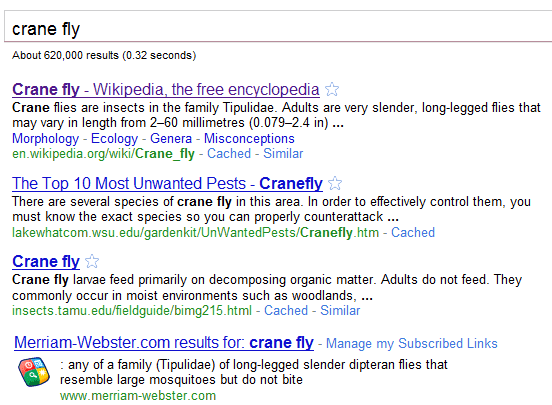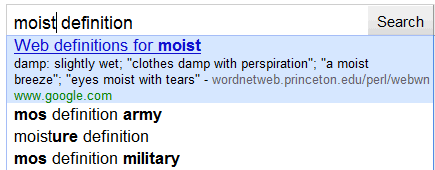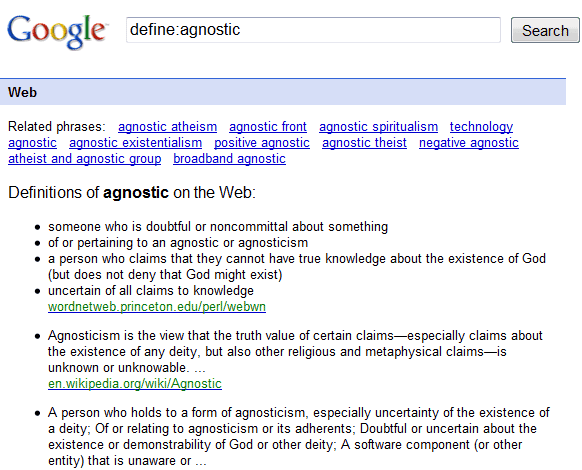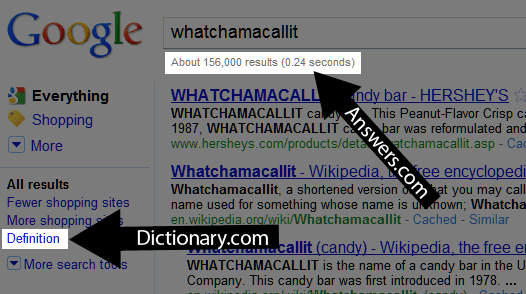
The latest redesign removed this feature, but you can use some workarounds:
1. Use the Merriam-Webster subscribed link, which adds the definition of your query after the third Google search result.

2. Type [your-keyword definition] in the search box and Google Suggest will show the definition without opening a new page:

3. Use the define: operator to show definitions automatically extracted from web pages:

4. Install the Google Dictionary extension for Google Chrome, which shows definitions by double clicking on a word. For Firefox, there's a great Answers.com extension, which shows definitions when you alt-click on a word.
5. Add Google Dictionary as a search engine for your browser. There's a search add-on for Firefox, but you need to manually add it to Internet Explorer by entering: http://www.google.com/dictionary?langpair=en|en&q=TEST in the URL field.
In Google Chrome and Opera, create a new search engine, type: http://www.google.com/dictionary?langpair=en|en&q=%s in the URL field and add a keyword like dict. Next time you type dict moist in the address bar, you'll see the definitions from Google Dictionary.
6. Install a Greasemonkey script which adds links to answers.com and dictionary.com.
"Google announced on May 5, 2010 it was rolling out a new layout for search results in which the major change was a new left navigation bar - however, along with those changes they decided to drop the "Definition" link that was originally on the upper right of the results page. They obviously dropped it because it wasn't being used that much, but I was one of the few users who used it all the time to quickly search Answers.com. In this script I've added in two links to the results page - one is simply taking over text that wasn't a link before and making it useful, and the other adds a link in the new left column navigation bar that takes you to Dictionary.com," explains the author.
I tested the script in Firefox, but I think that the link from the sidebar is unnecessary. Fortunately, you can edit the code and remove it.

No comments:
Post a Comment